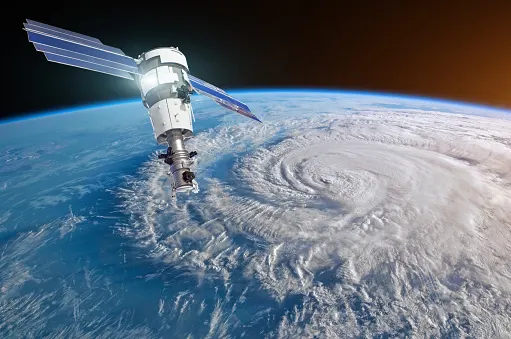
5G cell service may come at price of weather safety in U.S.
As companies pursue 5G cell coverage, weather scientists and other agencies flag potential dangers of the expanded broadcast spectrum.
The airwaves over the United States are about to get a bit roomier, despite concerns that new access may 'seriously impact public safety'.
The U.S.'s Federal Communications Commission (FCC) opened an auction last week to allow telecommunications companies to bid for access to new transmission frequencies for their wireless signals -- dubbed the '5G spectrum auction', as companies are expected to use this new frequency band to support expanded celluar service across the country.
Spring is here! Check theweathernetwork.com on Wednesday, March 20 to see what the season has ahead, plus get an EXCLUSIVE sneak peek at Summer 2019!
This is despite numerous concerns flagged by U.S. Congress, NASA, NOAA (the National Oceanic and Atmospheric Administration) and the Department of Defense, that access to the frequencies up for auction -- between 24.25 and 25.25 gigahertz (GHz) -- will interfere with the collection of critical weather data.
WATCH BELOW: TRACKING WATER VAPOUR OVER NORTH AMERICA
Specifically, agencies are concerned that useage of those transmission frequencies will interfere with satellites' ability to track water vapour, a key atmospheric element used by meteorologists and other Earth scientists. Due to water vapour's physical properties, it cannot be tracked at any frequency other than the 23.6 to 24 GHz band. Water vapour data is essential for forecasting things like heavy rainfall and tracking storm development, including hurricanes.
The most recent protest, authored by prominent members of the U.S. House of Representative's science committee, didn't pull any punches, telling the FCC "Any interferences with this channel would therefore seriously impact public safety."
"The water vapor channel is critical to weather sensing, monitoring, forecasting, and warning, and understanding climate patterns. Any interferences with this channel would therefore seriously impact public safety," Chairwoman Johnson and Ranking Member Lucas said in letters sent to the FCC last week, before the auction started.
A separate protest, raised by the House Appropriations Committee, said that forecasting accuracy would decrease to the levels of the 1970s if access to water vapour data was lost.
Despite these concerns, the auction opened as scheduled last Thursday. FCC spokesman Brian Hart told The Washington Post, "[the] 24 GHz auction is an important step towards securing American leadership in 5G," and added that the plan to do so has been "on the books" for 12 years.
5G networks are expected to be about 100 times faster than the current 4g technology. Canada is set to hold a similar auction next year.
Bidding had topped $400 million as of Monday afternoon.
Sources: Science | Broadcasting + Cable | U.S. House of Representatives | Washington Post |